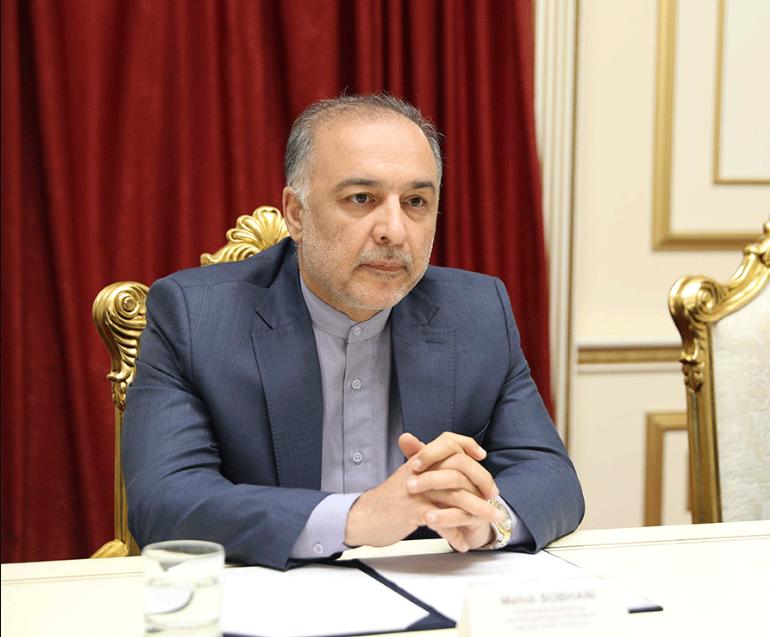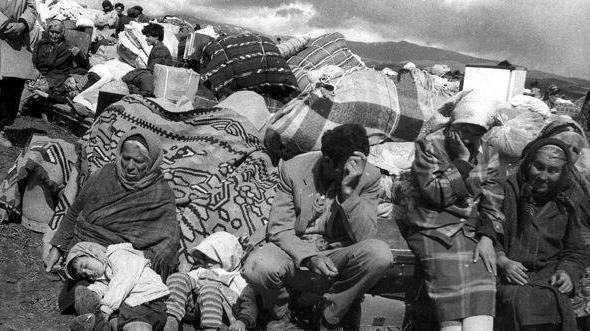Iranian envoy catering to Armenian revanchism amidst Baku-Tehran thaw Will Tehran rein the provocateur diplomat?
The Azerbaijani Embassy in Tehran has resumed its activity. This news that came online on July 15 is a confirmation that relations between Baku and Tehran have reached a new level, that our countries have overcome earlier disagreements. How can one not recall that a truly historic event took place at the end of May - the commissioning ceremony of the Khudaferin hydroelectric complex and the opening of the Giz Galasi hydroelectric complex built on the Araz river?! "Our participation in the opening of a major infrastructure project on the state border was evidence of the strength of Iran-Azerbaijan relations, it was a completely open message to both our peoples and the whole world that we are friends, brothers, and will remain together from now on," the Azerbaijani president emphasised at the time.
Iran now has a new president. Masoud Pezeshkian, an ethnic Azeri, has been elected. He has already addressed the world, noting that under his administration, priority will be given to strengthening relations with neighbouring countries. The message of the new Iranian president was published in the pages of the Tehran Times.
"I firmly believe that neighbouring and brotherly countries should not waste their valuable resources on destructive competitions, arms race or unwarranted containment of each other. Instead, we will endeavour to create an environment in which our resources are directed towards the progress and development of the region for the benefit of all," Masoud Pezeshkian said in his address. These were correct, positive messages, giving hope for further development and strengthening, including Azerbaijani-Iranian relations.
Official Baku has repeatedly stated that it is in favour of building not only a stable peace in our region, but also an atmosphere of cooperation between all regional countries. So, as we can see, there is a similarity of positions between Azerbaijan and the new Iranian president. It was all the more surprising to encounter a blatant information and diplomatic provocation authored by Iranian Ambassador to Armenia Mehdi Sobhani, who decided to give an interview to the Armenian service of Radio Liberty. This is already astonishing. After all, there are different media outlets in Armenia, but for some reason, Ambassador Sobhani decided to talk to a journalist representing the Yerevan branch of the American media. To whom Ambassador Sobhani sent his messages, what did he expect, making openly provocative statements? Time will tell.
I will only note, somewhat digressing from the main topic, that the Iranian ambassador to Armenia has still not publicly condemned the blatant case of chauvinism when a driver from the Iranian city of Khoy (South Azerbaijan) was beaten by Armenian border guards because of his ethnicity. The cause of the incident, as is well known, was the Armenian side's refusal to allow Iranian citizens through the border zone, harassing drivers of Azerbaijani origin and allowing only Armenian trucks through. This is what Sobhani is obliged to do. But he preferred to make openly anti-Azerbaijani statements.

"Our stance on the rights of Karabakh residents is clear. We acknowledge the territorial integrity of Azerbaijan and emphasize this point, but at the same time, we believe that the rights of the Armenian residents of Karabakh must be respected. This issue is like a wound that needs to be treated. If left untreated, it might reopen. When discussing stable peace, this wound must be considered," said the Iranian diplomat.
He noted that "the residents of Karabakh did not leave their homes voluntarily" and expressed hope that conditions would be created for their voluntary return. The Iranian Ambassador to Armenia affirmed that ensuring the safety of Armenians is indeed the issue at hand. "Naturally, the main reason they left this area is that they did not feel safe. I personally spoke with Karabakh residents when refugees arrived; I went to Kapan (Gafan) and talked to them. They said they did not leave their homes voluntarily. No one leaves their home voluntarily. They said they did not feel safe and thus left their homes," stated Sobhani.
For comparison, let me remind you that Azerbaijanis were forcibly expelled from Armenia through ethnic cleansing. To this day, over 250,000 Azerbaijanis are unable to return to the territory of modern Armenia, which was established on historical Azerbaijani lands. Furthermore, during the First Karabakh War, when Armenian occupiers seized our lands, they did not allow our elderly, women, and children time to gather their belongings. They separated parents from their sons and daughters, displaying monstrous, inhumane cruelty.

But the Iranian ambassador in Armenia decided not to mention any of this. In fact, he acted like an Armenian official, and specifically, one from the ranks of the revanchists. Ambassador Sobhani behaves as if he is unaware of the warming relations between Baku and Tehran. Moreover, in the past, he has repeatedly made provocative statements, particularly during last year's interview with the CivilNet platform, where he voluntarily became an advocate for the "people of Nagorno-Karabakh." At that time, the Azerbaijani Ministry of Foreign Affairs condemned Sobhani's statements and described them as "actions that do not correspond to the spirit of our relations."
And here is another provocative prank by the Iranian Ambassador to Armenia. Is such behaviour surprising? Not at all, if we remember that this diplomat is closely linked to the Iranian journalist Ehsan Mukhavvedyan, who constantly vilifies Azerbaijan. They both hate Azerbaijan's Pezeshkian and "mourn" his election as Iran's president. People like Iranian Ambassador to Armenia Sobhani are not interested in the normal development of relations between Iran and Azerbaijan and are doing everything possible to worsen them. But their efforts will ultimately prove futile. The wind of positive change between Baku and Tehran is blowing in full swing, and it can carry away those who try to move against the wind.
By Akbar Hasanov








